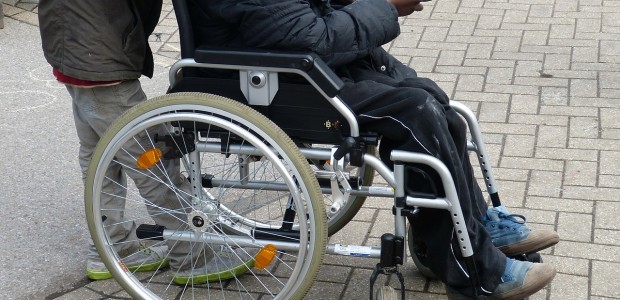International Day of Persons with Disabilities takes place on December 3 and draws awareness to persons with disabilities and the problems they are faced with in their everyday lives.
Disabilities include speech, language and communication needs which can sometimes be less obvious but can still impact greatly on a person’s life.
National Awareness Days.com is highlighting the day and says It is estimated that persons with disabilities around the world make up 10 per cent of the population, and 80 per cent live in developing countries.
But, even where disablility laws are in place, its effectiveness can be held back by negative attitudes towards disabled persons.
Because so many types of disabilities exist, understanding them all individually can be a difficult task. But here is your chance to learn more.
Are you disabled or do you know someone who is? Everyone has different skills, and interests, so why not find a way to celebrate that, whatever it is?
The Paralympics are a great example of how disabled people can show off their talents to the rest of the world. For more information on disability rights and disability aid visit the International Day of Persons with Disabilities website.
The United Nations has this year announced The Theme for 2015 as inclusion matters: access and empowerment of people of all abilities.
The annual observance of the International Day of Disabled Persons was proclaimed in 1992, by the United Nations General Assembly resolution 47/3. The observance of the Day aims to promote an understanding of disability issues and mobilize support for the dignity, rights and well-being of persons with disabilities. It also seeks to increase awareness of gains to be derived from the integration of persons with disabilities in every aspect of political, social, economic and cultural life.
Making cities inclusive and accessible for all
It is estimated that by 2050, 66 per cent of the world’s population will be living in cities. The United Nations’ Third Global Conference on Housing and Sustainable Development – Habitat III will take place in 2016 to review the progress, experience and lessons learned in the past and to design a “New Urban Agenda”. This Agenda of focused policies and strategies is hoped to harness the power and forces behind urbanization. Habitat III will provide an important platform for the world’s urban development policy-makers and practitioners, as well as those working in the field of disability to review current practices and identify opportunities for change.
Importantly, the New Urban Agenda must ensure that future cities, towns and basic urban infrastructures and services are more environmentally accessible, user-friendly and inclusive of all people’s needs, including persons with disabilities. The International Day will be used to discuss and present some best practices of inclusive urbanization
For more information go to:
The UN website on disabilities
Written by Rachel Harrison, speech and language therapist, on behalf of Integrated Treatment Services










